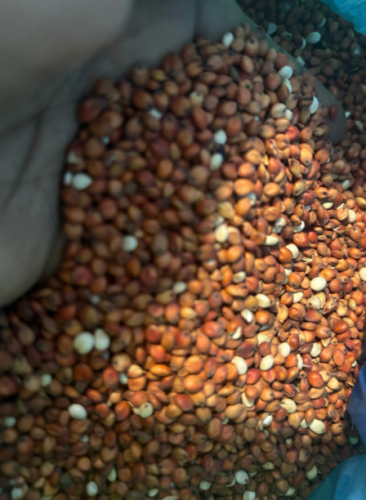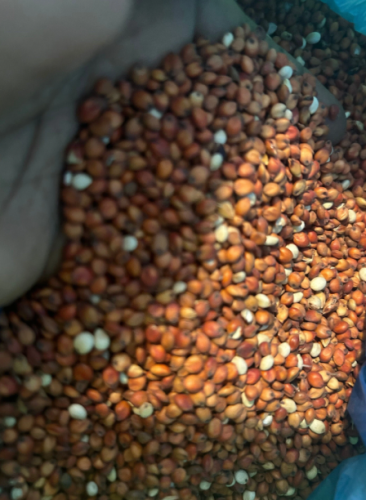
Sumaila Doho, Chief Executive Officer of Farmer Pride, an agribusiness organization based in the Upper West Region, has called on government to introduce deliberate policy intervention to support large scale production and seed development of sorghum, warning that Ghana is missing out on a major industrial and export opportunity.
Mr. Doho, the 2023 Upper West Regional Best Farmer, argued that the country’s agricultural sector is neglecting the commercialization of sorghum despite its vast potential for food security, job creation, and industrial use.
“Sorghum is one of the country’s under promoted but economically valuable cereal crops,” he said in an interview during a field visit to his farm at Duu. “It’s widely produced and consumed locally and internationally and serves as a key raw material for the food, beverage, and brewery industries.”
Sorghum ranks third in terms of production value among cereal crops grown in Ghana, after maize and rice, with a share of 12 percent of total cereal production value. The drought tolerant cereal has multiple varieties with both local and industrial appeal. The creamy or white types, particularly the Kapaala, Dorado, and Atokplechi varieties, are highly sought after by breweries and food processing companies due to their superior grain quality.
For the 2025/2026 production season, Farmer Pride has dedicated 100 acres (40 hectares) to sorghum cultivation, projecting an average yield of 2.2 tonnes per hectare. This output, Mr. Doho said, could produce enough certified seed to cultivate 550 acres (220 hectares) next season, demonstrating the scalability and commercial potential of the crop.
The red sorghum varieties, meanwhile, are central to the traditional pito brewing industry among the Dagaaba, Gonja, and Kassena communities. However, their production has declined significantly in recent years due to lack of investment, research, and improved seed supply.
Despite its potential, Ghana’s sorghum subsector remains stunted. Mr. Doho identified key constraints, including limited access to improved seed varieties, inadequate market linkages, and the absence of a government backed framework to promote sorghum as an industrial commodity.
He lamented that poor grain quality has made it difficult for local farmers to meet brewery standards, forcing companies to rely on imports when domestic alternatives could easily fill the gap.
“To help bridge this gap, Farmer Pride had taken the initiative to produce high quality Kapaala sorghum seeds for both smallholder and commercial farmers,” he revealed. “But we can’t do it alone. Government incentives and policy direction are crucial if Ghana is to scale up production and attract private sector investment.”
Mr. Doho believes that integrating sorghum into Ghana’s agricultural development strategy could help diversify the country’s industrial base, reduce import dependency, and create new opportunities in the beverage, food processing, and livestock feed sectors.
“With deliberate effort and government backing, we can transform sorghum into a major industrial crop that supports farmers, creates jobs, and contributes significantly to Ghana’s agricultural economy,” he said.
In 2023, Guinness Ghana partnered with SNV Netherlands on a project dubbed “Partnership for Sustainable Sorghum Sourcing in Ghana” to help more than 12,500 smallholder farmers produce 72,375 tonnes of sorghum between 2023 and 2028. The initiative demonstrates growing private sector interest in local sorghum sourcing.
However, the Ghanaian sorghum market decreased by 4.2 percent to $175 million in 2024 for the first time since 2021, ending a two year rising trend. Industry observers attribute the decline to inadequate seed quality, limited extension services, and weak coordination between producers and processors.
Meanwhile, experts have long argued that sorghum’s resilience to harsh weather and low water requirements make it ideal for northern Ghana’s climate. Its promotion could also support Ghana’s climate adaptation goals under the country’s agricultural transformation agenda.
As global demand for gluten free and health conscious food products continues to grow, stakeholders believe Ghana stands a strong chance of positioning itself as a regional hub for sorghum seed production if it acts decisively now. The Africa Sorghum Seed Market is expected to reach $187.4 million by 2030, growing at 6.17 percent annually during the forecast period, presenting significant opportunities for countries that invest in production capacity.
